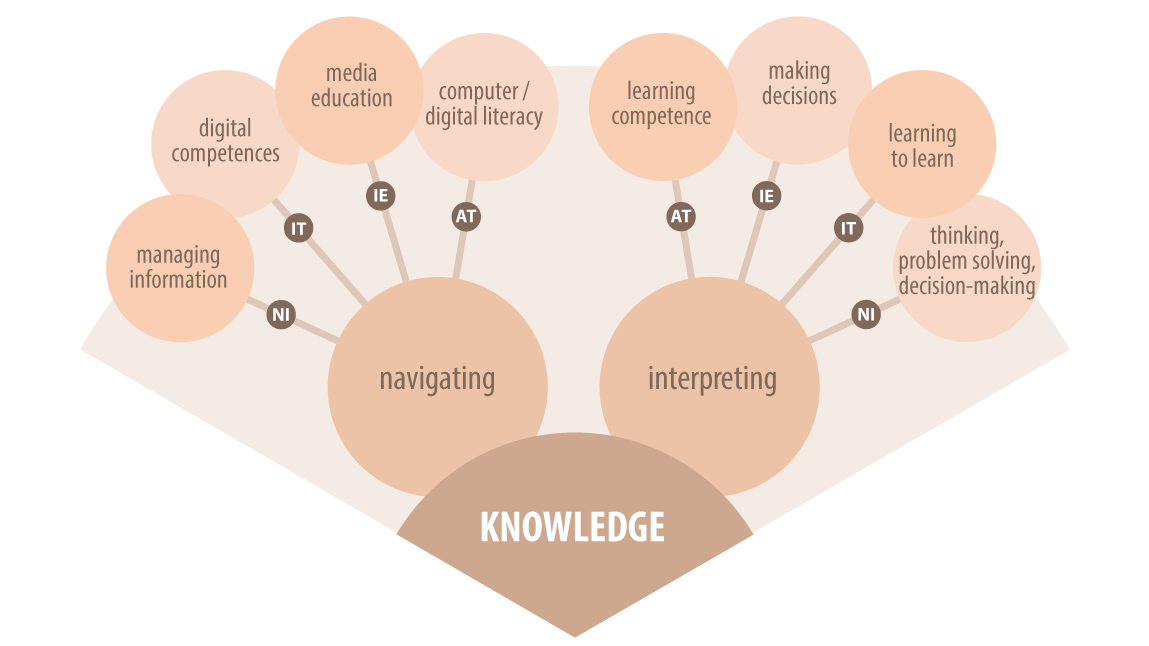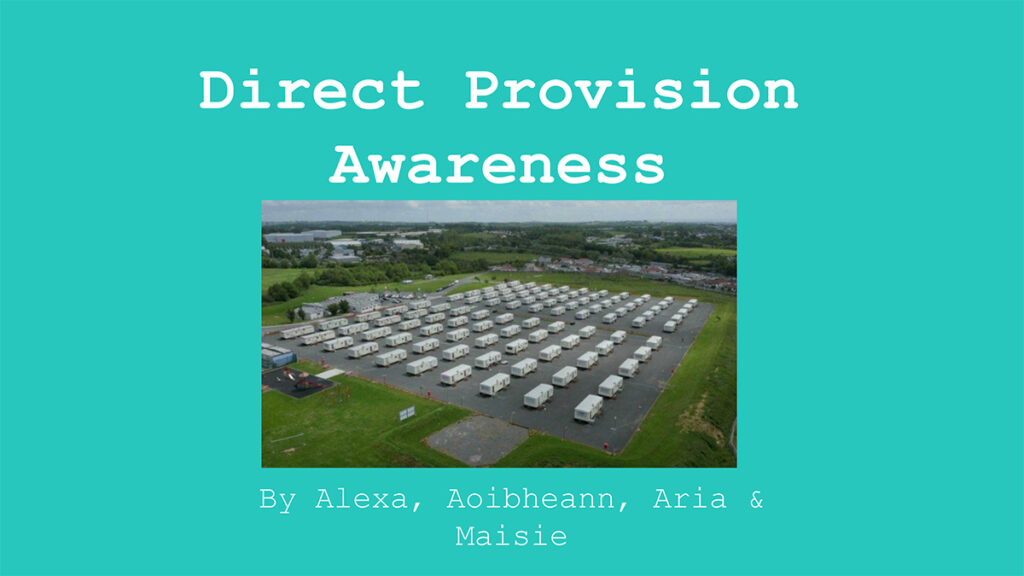Acquiring Knowledge

A key feature of the CEPNET project relates to building the capacity of our students to navigate and interpret the world around them. Through their dialogues, research and presentations, they must problem-solve, make use of data and technology to answer questions and come up with their own analysis. The students made use of their mathematics skills to crunch numbers from questionnaires, their writing and language skills to make convincing arguments about their findings, as well as a range of other technical and digital skills when navigating the many online and traditional media resources to find reliable answers to their questions
This section again allows the participants in the CEPNET project the space to describe they have navigated their way through acquiring new knowledge and how they have used different ideas and approaches to ensure that they can stand over their findings. Teachers, principals and students give their insights and testimonials about how the project helped in different ways.
Navigating- media and information literacy
Within each national curriculum, we find a focus on developing media information literacy with our children and young people. This can be seen as encouraging students to consider the messages and news being presented to them through a wide range of channels, whether in traditional formats such as newspapers and news bulletins on the radio or television and in more recent formats connected to online platforms and channels.
Within the classroom, our children are regularly encouraged by the their teachers to engage with news headlines and stories and consider issues of truth, objectivity and whether they are coming from reliable sources. These can be challenging conversations and can bring up many opportunities for classroom discussions on how the media and news reporting is structured.
The CEPNET project allowed for our students to consider such ideas about the manner in which they receive information and how they can navigate their way through media sources. These opportunities present themselves as the students work through the phases of dialogue as they decide on their topic of interest and as they undertake their research. CEPNET allows for a lens to be introduced in the classroom, where the students review their sources and decide whether the information is reliable. Through discussion with their peers in other schools, they can also share tips about their ways of engaging with data and information.

In this CEPNET project, a group of students sought to better understand how asylum seekers are treated in Ireland. They carried out extensive research using online sources, at times having to question whether there was a negative ideological perspective framing the information. Through discussion about these sources and their reliability, they were able to focus in on information that could be double-checked and validated before they would then make use of it. The students then felt that they should go further and collect their own data about awareness levels. They carried out a survey with parents and processed the data to highlight that there were significant gaps in knowledge about how asylum seekers are being treated in Ireland. Their project also looked at how young people fare in the direct provision system and tried to examine issues like nutrition and food within the system. They came up with a series of recommendations based on their information-gathering and analysis.
In this instance CEPNET allowed the group to firstly decide on their research interest, carry out a trawl of news items, assess and validate how it was presented, carry out their own primary research, produce a series of pie charts and bar charts to highlight their findings and then make recommendations about the abolition of the system. As a group, there were links made with NGOs working in this area to share their work, but due to Covid restrictions, this final step was not possible. However, the NGOs indicated that they would bring the work to the attention of the families with whom they work.
Interpreting- critical thinking
A further aspect of their knowledge acquisition work plays a central role in each phase of the student experience of CEPNET. The dialogue phase is predicated on the students engaging with the SDGs and digging deep into how these relate to their own lives. While this phase is facilitated by the teacher to encourage debate about the topics, the children and young people become the drivers and shapers of the flow of the discussions.
A range of exercises and games are used that encourage the use of their critical faculties. In one exercise, the students become members of the cabinet, with responsibilities and portfolios. They must then consider the priorities that identify in areas of health, education, environment and housing. Within small groups, they have to consider how they can present their ideas to the rest of the class. These other class members then become the media and are tasked with asking tough questions of the new Government ministers. As they act out these roles and get to enjoy their new powers, they are challenging each other to consider how their point of view and experiences can shape their futures.
One of our teachers highlights the benefits of promoting such an approach to critical thinking.
Another teacher explains the benefits of giving extra responsibility to the students in directing the focus of their learning process. Students were able to take charge of their research interests and projects. They could in turn decide how they wanted to present and share their results. Students carried out action projects such as beach and playground clean ups, making videos as they went. Others produced creative artwork including murals and a climate change rap.
An initial step in developing a critical voice for the students within the CEPNET project begins with their ability to choose a topic. Here two students highlight the importance of this choice and how it presents them with an autonomy that they are then able to build on.
One of the school principals involved in overseeing the CEPNET project in her school talks about the wider benefits.

